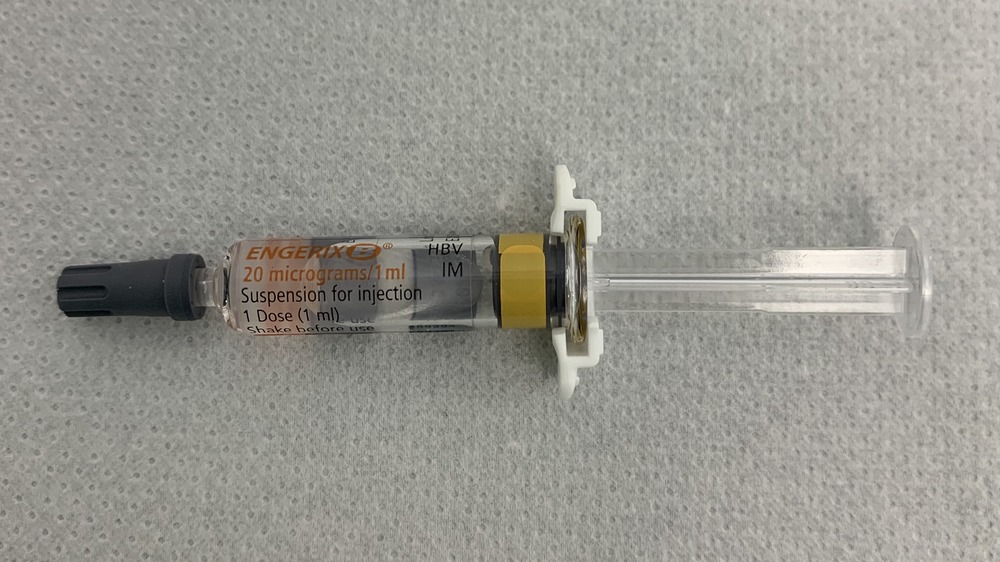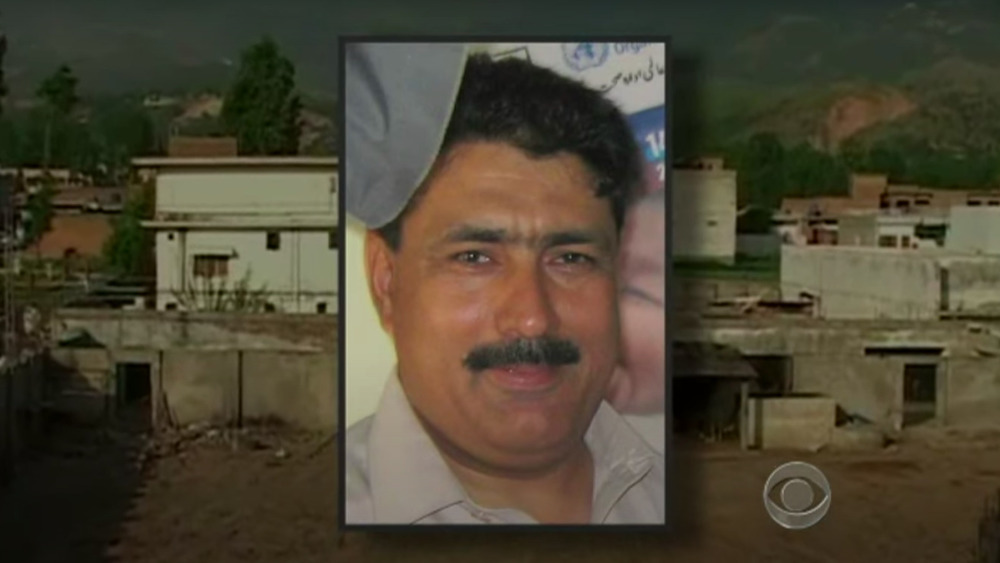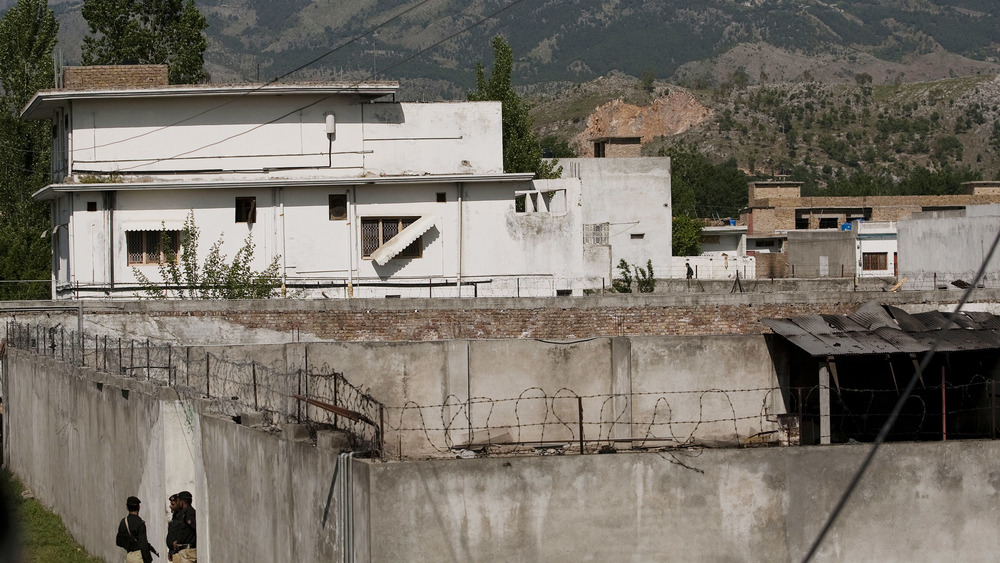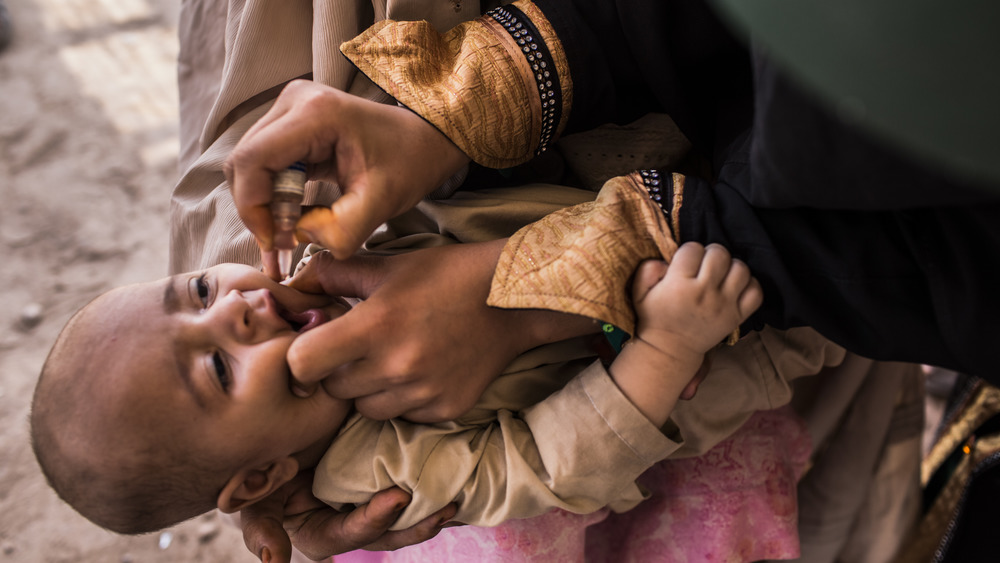The Tragic True Story Of The CIA's Fake Vaccination Campaign
Although the CIA isn't entirely to blame for the fact that wild polio remains endemic in Pakistan, they certainly didn't help the situation when they tried to use a fake hepatitis B vaccination program to capture Osama bin Laden. And even though their plan didn't exactly work as intended, it was effective enough to lead to a distrust of healthcare workers working to administer polio vaccines, per National Geographic.
As The Poynter Institute tells it, the situation was first reported by Saeed Shah, a Pakistani journalist, who claimed that the CIA and the State Department tried to stop him from publishing the story. The operation even reportedly used the "Save the Children" charity as a front, which goes against the CIA regulation that prohibits it from using American companies as fronts, although foreign companies are considered "fair game."
In the end, bin Laden was killed roughly one month after the CIA attempted to utilize their fake vaccination program. But was it worth it to give some children less than the adequate number of vaccine doses for hepatitis B and to sow distrust of health care workers? This is the tragic true story of the CIA's fake vaccination campaign
Who is Dr. Shakil Afridi?
Dr. Shakil Afridi worked as a senior health official in the Khyber Pakhtunkhwa Province in Pakistan during the late 1990s and early 2000s. After Afridi was kidnapped and ransomed in 2008, National Geographic reports that he and his family left Pakistan and moved to California. They didn't stay long, however, for a variety of reasons, including the fact that Afridi's medical license wasn't considered valid in the United States and he was unable to practice medicine as he had in Pakistan.
After returning to Pakistan, Afridi claims that he met an American woman named Kate after attending an event hosted by the "Save the Children" charity. And in January, 2011, Afridi was asked by Kate to start a hepatitis B vaccination campaign near Abbottabad.
But according to Scientific American, the aim of the vaccination program was not actually to vaccinate people, but instead to collect DNA from the neighborhood where it was believed that Osama bin Laden was hiding. After the used vaccination needles were collected for disposal, the CIA handlers planned to pass the needles on to the CIA, who would then test the DNA on the needles to see if any of the vaccinated children were related to bin Laden.
The CIA had been tipped off that bin Laden may have been hiding in Bilal Town, a suburb of Abbottabad, but there were a number of risks involved with launching a raid, so they wanted to be certain of his whereabouts beforehand.
Fake Hepatitis B Vaccines
In March, 2011, Afridi went to Abbottabad, claiming he had the funds to provide free hepatitis B vaccines. Afridi put up posters advertising the campaign around Abbottabad and, according to The Guardian, the vaccination project was even begun in Nawa Sher, "a poorer part of town to make it look more authentic."
A hepatitis vaccine is typically given over the course of three doses. The second dose comes one month after the first, and the final dose comes six months after the first dose, as confirmed by the Hepatitis B Foundation. But after administering the first dose in March, in April, Afridi and the nurses working on the vaccination program moved to Waziristan Kothi in Bilal Town, a three-story house where it was believed that bin Laden was living.
National Geographic reports that in his testimony, Afridi claimed that he had "no suspicions that his employer had another motive for launching a vaccination campaign in Abbottabad beyond health care and research." But when Afridi got to Waziristan Kothi, he was informed that none of the residents were home. However, the visit wasn't entirely futile for the CIA. They found out that Ibrahim Saeed Ahmed lived at the compound, who the CIA knew was bin Laden's "trusted courier."
One month later, bin Laden was killed by U.S Navy SEALs in a raid. Three weeks later, reports Radio Free Europe, Afridi was arrested by Pakistan's Inter-Services Intelligence for the role he played in the vaccination drive.
Affecting the polio vaccination efforts
After Afridi was convicted in Pakistan, the United States cut Pakistan's aid by $33 million, $1 million "for each of the 33 years of a prison sentence given to [Afridi]," per The Guardian. But the fake vaccination program ended up having another detrimental effect.
National Geographic reports that in 2012, polio flared up in Pakistan, partly due to the distrust towards health care workers after news of the fake vaccination campaign spread. Even before bin Laden's death, there was a negative view of polio vaccines, "where some village imams had claimed that the polio vaccines were part of a Western plot to sterilize Pakistani Muslims."
The revelation of the CIA's fake vaccination program only made it more difficult to administer vaccines. According to WIRED, the CIA's fake vaccination program feeds into conspiracy theories about vaccines and exacerbates the existing distrust directed toward health care workers. Unfortunately, as has been seen during polio vaccination rejections in the past, polio cases always rise when polio vaccination efforts are rejected. The BBC reports that as of 2020, Pakistan and Afghanistan are the last two countries where wild polio is known to occur.
According to NPR, in 2014, the CIA finally said that it would "no longer use vaccine programs as cover for spy operations."



